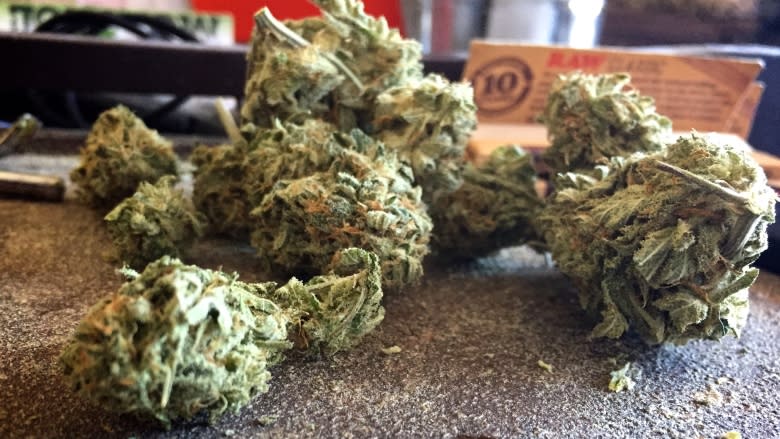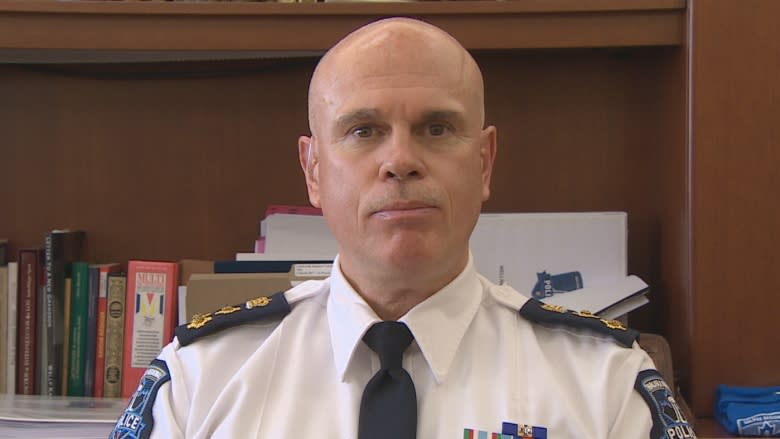What's next: Experts spell out challenges of marijuana legalization
Nova Scotia has 15 months to come up with ways to incorporate legal marijuana use into the province's justice, public health and finance systems.
A law professor, police chief and cannabis dispensary owner have weighed in on some of the issues they feel should be prioritized both on the road to and after the Trudeau Liberals introduce legislation to legalize pot in April 2018.
Legal rights versus public health
Archie Kaiser is a professor at the Schulich School of Law at Dalhousie. He says it's possible for Canada to make the transition successfully as other countries have done.
The challenge will be to define the role of criminal law while maintaining a focus on public health. Kaiser thinks legalization is a step in the right direction.
"By legalizing, you're at least shifting the focus towards maximizing public health, maintaining public safety, while considering issues of revenues. So you're changing the lens quite extensively."
Kaiser says Canada does have some experience from the Prohibition era when the country banned the production and consumption of alcohol and then built it into a highly profitable and legally regulated industry..
"One can also look to other countries for examples of where, either legalization or decriminalization, have shown moderate to high levels of success," he said.
Canada's Parliament, the public, provinces and municipalities will all play a role, however, he cautioned the final version of the legalization bill could look very different from the one introduced at first reading.
Keep it out of the hands of teens
Halifax Police Chief Jean Michel Blais said it will be business as usual for law enforcement until final decisions are made by the federal and provincial governments.
He does have an opinion on the minimum age of consumers permitted to buy legalized pot.
"As we've seen, there are concerns that anybody under the age of 25 who consumes marijuana is going to be having some cognitive impairment. Obviously, other people are comparing it to cigarettes and saying it should be only 18," Blais said.
"I think it's going to be whatever the provincial legislature decides upon. Obviously, I'd like to see it as high as possible," said Blais.
Impairment issues concern McNeil
Premier Stephen McNeil also says he'll comply with the federal government's final decisions.
However, he said he does have some concerns over how to deal with impairment such as operating a vehicle under the influence of marijuana.
"From an impairment point of view, we need to make sure we have the right protocols in place," the premier said.
"The Department of Justice has been working with their federal counterparts to make sure when it's legalized the proper protocols will be there."
'Start to work together'
Chris Enns is the owner of Farm Assists, a cannabis dispensary in downtown Halifax, will continue to battle criminal charges until legalization occurs. His storefront business has been raided three times since 2013.
All charges were dropped for employees. Enns still faces combined indictment charges before the Supreme Court of Nova Scotia. And despite the city's attempt to shut it down, Farm Assists remains open for business.
Enns thinks it's a simple human rights issue for patients to have access to cannabis, or medicine as he calls it, whenever they need it.
"We would argue that the Charter, under Section 7, guarantees patients a right to life and a security of the person that doesn't [deprive] them the option to purchase cannabis from a storefront dispensary," Enns said.
"We're here to fill that gap and make sure those patients' Section 7 rights are maintained."
Enns said now that the federal government is moving toward legalization, he's ready to take a proactive approach and work with the province and municipality in providing a safe place for patients to buy cannabis from a retail storefront.
"If we move forward together as a city, as a province, as a nation on opening the doors and turning the ground on prohibition, then we can put in place those safe guards and start to work together," Enns said.
"Ultimately, criminal activity around cannabis has resulted from a vacuum of production and vacuum of distribution. When a vacuum exists that's created by prohibition, there will be criminality to fill that void."




